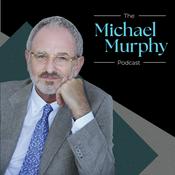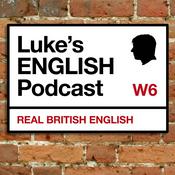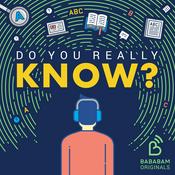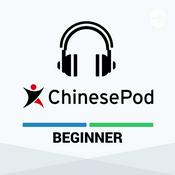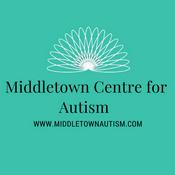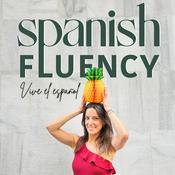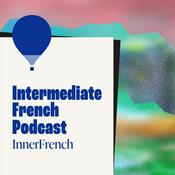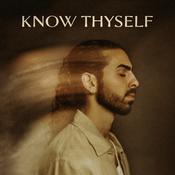104 episodes
- Welcome to a new episode of The Way Out Is In: The Zen Art of Living, a podcast series mirroring Zen Master Thich Nhat Hanh’s deep teachings of Buddhist philosophy: a simple yet profound methodology for dealing with our suffering, and for creating more happiness and joy in our lives.
In this installment, Zen Buddhist monk Brother Phap Huu and leadership coach/journalist Jo Confino discuss what it means to walk a spiritual path.
The conversation provides a deep and personal insight into the life of a long-term Buddhist practitioner, as Brother Phap Huu reflects on his 25 years as a monk, including the joys and challenges of living in a spiritual community; the role of a teacher on the path; the importance of finding one’s own inner teacher; the practice of celibacy; the transformations that can happen through spiritual practice; the lessons learned from 17 years as Thich Nhat Hanh’s attendant; and much more.
Co-produced by the Plum Village App:
https://plumvillage.app/
And Global Optimism:
https://globaloptimism.com/
With support from the Thich Nhat Hanh Foundation:
https://thichnhathanhfoundation.org/
List of resources
Course: Zen and the Art of Saving the Planet
https://plumvillage.org/courses/zen-and-the-art-of-saving-the-planet
Interbeing
https://en.wikipedia.org/wiki/Interbeing
Plum Village Tradition
https://en.wikipedia.org/wiki/Plum_Village_Tradition
Fragrant Palm Leaves
https://plumvillage.org/books/1998-neo-ve-cua-y-fragrant-palm-leaves
Dharma Talk: ‘Redefining the Four Noble Truths’ https://plumvillage.org/library/dharma-talks/redefining-the-four-noble-truths
Taming the Tiger Within
https://www.parallax.org/product/taming-the-tiger-within/
Sister True Dedication
https://plumvillage.org/people/dharma-teachers/sister-hien-nghiem
Sister Chan Khong
https://plumvillage.org/about/sister-chan-khong
Brother Phap Ung
https://plumvillage.org/people/dharma-teachers/brother-chan-phap-ung
Quotes
“A good teacher is to show that each and every one of us has a teacher inside of us.”
“It’s enough of a journey to transform ourselves before we choose to transform other people.”
“You’re already the person you want to be.”
“A lot of us are defined by our past, and we let that become our whole narrative. But I think that Thay stepped into transforming his past and seeing himself in the present moment and not being caught in a prison of ‘what was’.”
“Thay was very optimistic – not an ignorant optimism, but optimistic with the insight that there is awakening everywhere. We just have to tap into the right conditions, into the right path, so that those seeds can blossom into trees and into a garden.”
“Every human being that comes into the spiritual path is different. We all have different stories, experiences, histories, upbringing. So we can’t bundle everyone into the same boat. But each and every one of us have to see and accept each other’s differences, suffering, and limits, and be patient with each other.”
“When we talk about becoming a monk, we talk about stepping into freedom. And that freedom is the choice that we have made to not chase after, in our language, worldly successes. Those successes come with different layers of desires and hooks that would trap us. And the aspiration is ideal, but on the path itself, we all have to encounter our own demons within us.”
“Be beautiful, be yourself.”
“There’s a saying, particularly for monastics, that, when you wear the robe of a monk, your home is everywhere. Because our home is the present moment. The present moment is our daily destination, so that is where we will never feel lost. But that is insight and that is practice.”
“If we are a teacher who thinks we have all the answers, I don’t think we will really connect with everyone. We won’t connect with the ever-changing present moment, the ever-changing generations.”
“When we see that our whole career will become a spiritual career, the deepest aspiration is to be free from all desires. And sex is a desire. Physical contact is a desire. Emotional connections could become a deep attachment, which is a desire. And, in our practice, why do we want to be free from that? Because only when we are free from it can we be of service to the world. Our deepest aspiration is to be of service to the world, whatever world we encounter in our lifetime. But if I have a family, if I have a partner, that becomes my world and that becomes my holy life, my holy family, my community – and, of course, my son or my daughter or my children will become the focus of my devotion. But monastics want to meet the world, at any moment, without being tied down and bound to these relationships.”
“Sometimes, the mind is not the answer, and the heart is stronger. And we have to lean into the heart and be stubborn with the mind.” - Welcome to a new episode of The Way Out Is In: The Zen Art of Living, a podcast series mirroring Zen Master Thich Nhat Hanh’s deep teachings of Buddhist philosophy: a simple yet profound methodology for dealing with our suffering, and for creating more happiness and joy in our lives.
In this installment, Zen Buddhist monk Brother Phap Huu and leadership coach/journalist Jo Confino discuss the importance of creating inner space and stillness through meditation practices. But what does it actually mean to create more space in our lives? And why is this important, and how do we go about it?
The conversation emphasises that the practice of meditation is not just about achieving enlightenment, but about becoming more present, compassionate, and engaged with the world. It touches upon the difficulties of finding space in modern life, the benefits of different meditation techniques, and misconceptions around enlightenment.
The hosts also share personal experiences, including insights about how meditation has deepened their practice and allowed them to navigate challenges with greater flexibility and understanding.
The episode ends with a meditation guided by Brother Phap Huu.
Co-produced by the Plum Village App:
https://plumvillage.app/
And Global Optimism:
https://globaloptimism.com/
With support from the Thich Nhat Hanh Foundation:
https://thichnhathanhfoundation.org/
List of resources
Pilgrimage: In the Footsteps of the Buddha
https://plumvillage.org/event/pilgrimage/in-the-footsteps-of-the-buddha-2
Being with Busyness: Zen Ways to Transform Overwhelm and Burnout
https://www.parallax.org/product/being-with-busyness/
Calm in the Storm: Zen Ways to Cultivate Stability in an Anxious World
https://www.parallax.org/product/calm-in-the-storm/
Course: Zen and The Art of Saving the Planet
https://plumvillage.org/courses/zen-and-the-art-of-saving-the-planet
Interbeing
https://en.wikipedia.org/wiki/Interbeing
Plum Village Tradition
https://en.wikipedia.org/wiki/Plum_Village_Tradition
‘Resources for Practicing the 16 Exercises of Mindful Breathing’
https://plumvillage.app/resources-for-practicing-the-16-exercises-of-mindful-breathing/
‘Making the App More Inclusive: Introducing the ‘Access to Practice’ Folder’
https://plumvillage.app/introducing-the-access-to-practice-folder/
Robert Thurman
https://en.wikipedia.org/wiki/Robert_Thurman
Mahayana
https://en.wikipedia.org/wiki/Mahayana
Bodhisattvas
https://en.wikipedia.org/wiki/Bodhisattva
The Way Out Is In: ‘The Three Doors of Liberation (Episode #18)’
https://plumvillage.org/podcast/the-three-doors-of-liberation-episode-18
Sister Chan Lang Nghiem
https://plumvillage.org/people/dharma-teachers/sr-lang-nghiem
Quotes
“Walking meditation was our teacher’s favorite practice and it was really a life-changing cultivation for him. Because, particularly when we are very emotional – whether that be grief, agony, pain, anger, frustration – it is probably better to be in a state of motion.”
“The Buddha has said, What are we mindful of? We are mindful of our suffering. Why do we practice? To liberate ourselves and all beings from suffering. That is the greatest vow of a monk or a nun: to find liberation in oneself and liberation in all.”
“There are so many creations of senses – what we see, what we hear, what we smell, what we taste – to help us cope with our suffering. And when we are suffering, whether that suffering is very petite, a daily concern, or is a generational trauma, we don’t have language for how to be with that suffering. Therefore, we look for a way out – and the world loves giving us a prescription of, ‘If you do this, you will feel that.’”
“Sometimes silence is a chance for us to be in touch with deep suffering or deep experiences that our noise has covered up. As a meditator, space gives us the barrier and boundaries to listen and to hold. If we don’t create that space, we will be on autopilot for the rest of our life. Our mind is on autopilot; it has a way of thinking, a way of doing, a way of perceiving, of creating perceptions, creating judgment. So when we meditate and have the opportunity to listen to and then to guide the mind, it gives the mind a chance to not also be carried away by its own habits – which is thinking.”
“Thinking is not a bad thing. Like our teacher has always transmitted to us, thinking is a part of creating a view in life, a project, a mission, an intention. But most of our thinking is not productive. It is actually more daydreaming, it is more procrastination. It is more like a zombie, in a way, or a sleepwalker. It has no destination; it’s just on autopilot.”
“Many people feel they have to sit on a cushion, they have to have a shrine, they have to light incense, they have to light a candle – which of course can be very beautiful and give a good atmosphere for meditation. But you can also do it on a busy bus or train, or as you’re sitting on a park bench. It’s not about taking things out of your life; it’s about allowing life to be.”
“Sometimes we sit just to enjoy sitting and doing nothing, because maybe that’s the one gift that we want to give to ourselves – because we’re always doing, we’re always in fifth gear. Sometimes we need a radical act: to sit and do nothing, to give and create and redefine space for ourselves.”
“How can we keep mindfulness alive if we are not cultivating it? Sitting meditation is one of the concrete cultivation practices.”
“There is right mindfulness and wrong mindfulness. We could be a wonderful burglar with full concentration – but we would be creating suffering. So right mindfulness relieves suffering; it is about understanding suffering and heading towards the path of understanding and love.”
“One time our teacher told us that sometimes insight doesn’t come during sitting meditation, but when it’s ripe. Maybe when we’re most relaxed: when we’re not thinking about it, but are living the moment very deeply. And Thay told us that, a lot of the time, it would come while he was gardening or doing walking meditation. But sitting meditation is the cultivation; it is like a gardener tending the seeds of insights to help us have a moment of, ‘Ah, I get it.’”
“The practice is maybe just continuing to unlearn things, in order to learn again.”
“There is no way to peace. Peace is the way.”
“Sitting is already action. When we sit in this way and have new insight, that will become the thread of so many actions coming forward. So don’t underestimate the power of sitting still; yes, we have apps and guided meditations, but also build the capacity of generating your own guide. And that breath is there, that body is there. Then the community is there – and that’s the beauty of a tradition.”
“Whenever we speak about enlightenment, enlightenment of what? What do we want to be enlightened from or towards? Then, later on – like in my own growth – I see that enlightenment is a verb; it is a continuous enlighten-ing. You cannot be enlightened today, December the 9th, and expect that enlightenment to stay the same in 2028. Because things are changing; we are changing. The world is changing.” - Welcome to a new episode of The Way Out Is In: The Zen Art of Living, a podcast series mirroring Zen Master Thich Nhat Hanh’s deep teachings of Buddhist philosophy: a simple yet profound methodology for dealing with our suffering, and for creating more happiness and joy in our lives.
This special episode – part one of two question-and-response (Q&R) installments – commemorates the publication of the second book by Zen Buddhist monk Brother Phap Huu and leadership coach Jo Confino, which was published earlier this year. Calm in the Storm: Zen Ways to Cultivate Stability in an Anxious World is intended to help readers meet the current polycrisis with stability and resilience, but also forcefulness and love.
According to Plum Village tradition, Jo and Brother Phap Huu recorded two episodes that respond to listeners’ questions which connect to the book’s themes – from balancing kindness and anger in challenging times to staying compassionate with a world where there’s little deep listening; how to best support young people; caring for oneself while serving others; and much more.
Enjoy!
List of resources
Pilgrimage: ‘In the Footsteps of the Buddha’
https://plumvillage.org/event/pilgrimage/in-the-footsteps-of-the-buddha-2
Being with Busyness: Zen Ways to Transform Overwhelm and Burnout
https://www.parallax.org/product/being-with-busyness/
Calm in the Storm: Zen Ways to Cultivate Stability in an Anxious World
https://www.parallax.org/product/calm-in-the-storm/
Interbeing
https://en.wikipedia.org/wiki/Interbeing
The Order of Interbeing
https://plumvillage.org/community/order-of-interbeing
Plum Village Tradition
https://en.wikipedia.org/wiki/Plum_Village_Tradition
The Way Out Is In: ‘The Three Jewels (Episode #89)’
https://plumvillage.org/podcast/the-three-jewels-episode-89
Sister Chan Dieu Nghiem (Sister Jina) https://plumvillage.org/people/dharma-teachers/sr-dieu-nghiem
Dharma Talks: ‘The Five Skandhas of Grasping and Non-Self’
https://plumvillage.org/library/dharma-talks/the-five-skandhas-of-grasping-and-non-self%E2%80%8B-dharma-talk-by-br-phap-lai-2018-06-08
The Way Out Is In: ‘Joanna Macy’s Message of Hope’ https://plumvillage.org/podcast/joanna-macys-message-of-hope
The Way Out Is In: ‘Active Hope: The Wisdom of Joanna Macy (Episode #25)’
https://plumvillage.org/podcast/active-hope-the-wisdom-of-joanna-macy-episode-25
The Way Out Is In: ‘Grief and Joy on a Planet in Crisis: Joanna Macy on the Best Time to Be Alive (Episode #12)’
https://plumvillage.org/podcast/grief-and-joy-on-a-planet-in-crisis-joanna-macy-on-the-best-time-to-be-alive-episode-12
‘Three Resources Explaining the Plum Village Tradition of Lazy Days’
https://plumvillage.app/three-resources-explaining-the-plum-village-tradition-of-lazy-days/
Śāriputra
https://en.wikipedia.org/wiki/%C5%9A%C4%81riputra
Rāhula
https://en.wikipedia.org/wiki/R%C4%81hula
How To: ‘Begin Anew’
https://plumvillage.org/articles/begin-anew
Quotes
“Do we control the world? We’re controlling our actions, if we’re mindful. But most of us let our actions control us. We let worry control us; we let the news control us; we let fake news control us; we let stories control us. We let energies that may be untrue control us.”
“We have to have the ability to generate joy and to be in touch with simple happiness and, even in moments of bitterness and difficulty, to come back to the present moment and ask the question, ‘What am I grateful for? What things surrounding me can I devote myself to, because I’m grateful for them?’”
“Thay always reminded us to take joy and happiness seriously, and, in our modern times, people who come to Buddhism and spirituality, in particular, become allergic to the words ‘happiness’ and ‘love’ and ‘smiles’ because they’re not celebrated enough in the world. Because it looks too hippie-dippie. They seem too easy, in a way. But knowing that joy is always accessible is enlightenment, is healing, is love.”
“Each and every one of us, when we start the journey of practice, really have to take seriously how to generate joy every day, with no exceptions. Don’t take it for granted.”
“Compassion is the foundation for not burning out, for not becoming hateful, for not becoming toxic. It is the foundation of understanding and love.”
“When you don’t have enough joy, lean into other people’s joy. You’re not alone.”
“The whole purpose of mindfulness is to more deeply understand ourselves, and then to more deeply understand how we relate to the world.”
“When you know how to listen, you’re already a teacher in the dharma – not through your spoken words, but through your way of just being. So don’t underestimate the practice of deep listening, because that can open the doors to people’s hearts as well as allowing them to touch healing. Because deep listening allows us to be vulnerable; it allows us to cry the tears that need to be shed to water our fields of pain and our seeds of love, understanding, and kindness. That is all deep listening; meditation is deep listening.”
“Wherever there is darkness, light is already there, because the two coexists – and wherever there is light, there is darkness.”
“Accept despair and let it deeply touch and tenderize your heart. Because that’s what despair can do. Rather than seeing it as “the end of a journey, see it as something we touch deeply and which can begin a new journey.”
“There’s something about taking the longer view and recognizing the great arc of time and not becoming so caught up in this moment, as though it’s the only moment. Recognize that life will continue in many forms, and trust in that.”
“We have to use both wings of meditation – stopping and looking deeply – in every crisis that we find ourselves in or find ourselves facing.” - Welcome to a new episode of The Way Out Is In: The Zen Art of Living, a podcast series mirroring Zen Master Thich Nhat Hanh’s deep teachings of Buddhist philosophy: a simple yet profound methodology for dealing with our suffering, and for creating more happiness and joy in our lives.
In this installment, Zen Buddhist monk Brother Phap Huu and leadership coach Jo Confino explore the lifelong journey of self-forgiveness and how to forgive ourselves. How do we find the capacity to let go of past hurts and come into the fullness of our lives?
The conversation also touches upon themes like self-love, self-compassion, community, spiritual growth, impermanence, the coexistence of suffering and happiness, and the importance of ongoing practice.
Brother Phap Huu discusses the Buddhist perspective of the Dharma threading through time, embracing past, present, and future; how loving oneself begins with recognizing and accepting one’s stories and scars; the importance of treating oneself with kindness and compassion; acknowledging unskillful actions; practicing with the inner child; and much more.
In addition, personal stories shared by the presenters illustrate how forgiveness and self-love evolve over time, and that forgiving oneself is vital for genuine compassion and service.
The episode concludes with aspirations for the new year.
Co-produced by the Plum Village App:
https://plumvillage.app/
And Global Optimism:
https://globaloptimism.com/
With support from the Thich Nhat Hanh Foundation:
https://thichnhathanhfoundation.org/
List of resources
Pilgrimage: ‘In the Footsteps of the Buddha’
https://plumvillage.org/event/pilgrimage/in-the-footsteps-of-the-buddha-2
Being with Busyness: Zen Ways to Transform Overwhelm and Burnout
https://www.parallax.org/product/being-with-busyness/
Calm in the Storm: Zen Ways to Cultivate Stability in an Anxious World
https://www.parallax.org/product/calm-in-the-storm/
Interbeing
https://en.wikipedia.org/wiki/Interbeing
The Way Out Is In: ‘Healing Our Inner Child: Pathways to Embrace Our Suffering (Episode #10)’
https://plumvillage.org/podcast/healing-our-inner-child-pathways-to-embrace-our-suffering
The Way Out Is In: ‘The Three Jewels (Episode #89)’
https://plumvillage.org/podcast/the-three-jewels-episode-89
‘Looking Deeply: Healing the Inner Child’
https://plumvillage.org/articles/healing-the-inner-child
The Inner Child (short guided meditation)
https://www.youtube.com/watch?v=zauJYihF2fQ
Dharma Talks: ‘Taking Refuge in the Three Jewels’
https://plumvillage.org/library/dharma-talks/taking-refuge-in-the-three-jewels-sr-chan-duc-spring-retreat-2018-05-20
John Bradshaw
https://en.wikipedia.org/wiki/John_Bradshaw_(author)
Sutras: ‘Discourse on Knowing the Better Way to Live Alone’
https://plumvillage.org/library/sutras/discourse-on-knowing-the-better-way-to-live-alone
The Order of Interbeing
https://plumvillage.org/community/order-of-interbeing
Quotes
“What we have learned in the art of mindful living and the art of love and understanding is that we are ever-changing. We’re constantly changing. The Buddha has said that we cannot bathe in the same river twice. When we bathe in that river, the river is not the same and we are not the same.”
“The Buddha says that suffering is made of non-suffering elements – and that means you have happiness inside.”
“What I’ve learned from my journey is that healing is always a verb.”
“There is no way to healing; healing is the way.”
“Our practice of listening is very important. When we say we have to learn to listen, listen not to respond, but just to listen. Listen to acknowledge, accept, and witness.”
“It’s important to be in the present moment, but it’s also important to have an aspiration to bring into the present moment – not to see in the future, but to see coming alive right now.” - Welcome to a new episode of The Way Out Is In: The Zen Art of Living, a podcast series mirroring Zen Master Thich Nhat Hanh’s deep teachings of Buddhist philosophy: a simple yet profound methodology for dealing with our suffering, and for creating more happiness and joy in our lives.
This is the recording of our second live public event, which recently took place in London. Zen Buddhist monk Brother Phap Huu and leadership coach/journalist Jo Confino are joined on stage by special guest Ocean Vuong, Vietnamese American poet, essayist, and novelist.
Their conversation explores the themes of joy, togetherness, and cultivating courage in the face of hardship and suffering; the role of language, narrative, and technology in shaping modern experiences of suffering and joy; intergenerational trauma; and more.
All three share personal experiences and insights about finding meaning and community amidst individual and collective challenges. Ocean recollects the way that, growing up in a community impacted by the opioid crisis, Buddhism and the teachings of Thich Nhat Hanh provided solace and a path to understanding suffering, while Brother Phap Huu reflects on his journey to become a Zen Buddhist monk, and the role of kindness, fearlessness, and vulnerability in his practice.
The discussion culminates with a chant offered by Ocean as a message of hope and resilience in the face of adversity.
Co-produced by the Plum Village App:
https://plumvillage.app/
Plum Village UK
https://plumvillage.uk/
And Global Optimism:
https://globaloptimism.com/
With support from the Thich Nhat Hanh Foundation:
https://thichnhathanhfoundation.org/
Photo credit: Wayne Price
List of resources
Ocean Vuong
https://www.oceanvuong.com
Being with Busyness: Zen Ways to Transform Overwhelm and Burnout
https://www.parallax.org/product/being-with-busyness/
Calm in the Storm: Zen Ways to Cultivate Stability in an Anxious World
https://www.parallax.org/product/calm-in-the-storm/
Interbeing
https://en.wikipedia.org/wiki/Interbeing
W. S. Merwin
https://en.wikipedia.org/wiki/W._S._Merwin
Harry Beecher Stowe
https://en.wikipedia.org/wiki/Harriet_Beecher_Stowe
Tom Brokaw
https://en.wikipedia.org/wiki/Tom_Brokaw
Duḥkha
https://en.wikipedia.org/wiki/Du%E1%B8%A5kha
Ford Model T
https://en.wikipedia.org/wiki/Ford_Model_T
The Dhammapada
https://en.wikipedia.org/wiki/Dhammapada
Anaphora
https://en.wikipedia.org/wiki/Anaphora_(rhetoric)
Schadenfreude
https://en.wikipedia.org/wiki/Schadenfreude
‘Bright Morning Star’
https://en.wikipedia.org/wiki/Bright_Morning_Star
‘The Five Earth Touchings’
https://plumvillage.org/key-practice-texts/the-five-earth-touchings
Quotes
“When drinking water, remember the source.”
“On the last day of the world / I would want to plant a tree / what for / not for the fruit […] / I want the tree that stands / in the earth for the first time / with the sun already / going down” – from ‘Place’ by W.S. Merwin.
“Being a Vietnamese person in the diaspora, for many of us, the temple or the church or what have you is the place where we hear Vietnamese at the longest unbroken duration. Whereas someone native to Vietnam would hear it all the time. So, to this day, the Vietnamese language, to me, elicits this collective desire to heal and understand suffering. And it’s very specific to the immigrant. It’s what I call a third culture: there’s nothing like it in the homeland; there’s nothing like it in the assimilated American ethos. But there’s this special place that displacement and violence created.”
“In Plum Village, when I first entered, I was 13 years old, and I touched a kind of kindness that I’d never touched before. And I asked myself whether I could be a kind person. I think I’m good; I think I’m going to have a career of offering smiles.”
“I invite us, as a collective, to invoke this peace that we can bring in our hearts and into the world at this moment. Body, speech, and mind in perfect oneness. I send my heart along with the sound of this bell. May the hearers awaken from forgetfulness and transcend the path of anxiety and sorrow.”
“Just a smile can save someone’s life.”
“Technology was supposed to bring us together. This is the promise of the Enlightenment. But it’s interesting that all technological movements or renaissances are controlled by the wealthy and the elites. So what I’m interested in, as a writer, as a teacher, is that so much of our world is about material resources and narrative. And this is why I tell my students, ‘They shame you for being a poet, for being a writer: “Oh, you’re doing this liberal arts, naval-gazing, decadent thing, dreaming”’ – but the politicians and the elites are poets too. The greatest political speech is the anaphora. Walt Whitman used it as a catalog, but you hear it: ‘We will heal the working class, we will heal the great divide, I will solve, we will heal this country’s heart, we will heal the middle class.’ And that’s why the anaphora is so useful: because it doesn’t have to explain itself.”
“All those in power are also poets. They’re manipulating meaning, but for votes, for profit, for power, towards fascism. And no wonder the system is designed to make you ashamed to be an artist. It’s so interesting, isn’t it, that, in the art world, we’re often asked to be humble, to be grateful for a seat at the table; to perform humility. And I think humility is good; as a Buddhist, I believe in it, but there is a discrepancy here: we never tell people on Wall Street to be humble. You never hear someone say, ‘You know what, we killed it last quarter, so let’s tone it down and be grateful that we have a seat at the economic table.’”
“Kindness is more difficult now than ever because I think kindness is something that is deeply dependent on our proximity to suffering. It’s harder for us to comprehend suffering, now. Schadenfreude is in our hands and it’s always easier to see. We’ve normalized suffering so much that we’ve been disassociated from it.”
“We speak about inclusiveness and equanimity in Buddhism, but we’re not equal. Some of us are born in places where we have more privileges: in a particular race, in a particular situation, in a particular year. But what is equal is, as human beings, we’re all going to grow old, we’re all going to get sick, we’re all going to have to let go of what we think is permanent. And we’re going to learn to live deeply in the present moment.”
“Sadness becomes not just a feeling, but knowledge. So think about sadness as knowledge, as potential, and that anger even has an aftermath. And you realize that the aftermath of anger is care.”
“The big trouble with masculinity is that we are not given the ability or the permission to feel and be vulnerable – but we are encouraged to have absolute agency. It’s incredible. It’s a perfect storm of violence: ‘Don’t feel, don’t interrogate, and don’t be vulnerable. But, meanwhile, go get ‘em, buddy.’”
“Under our greatest fear is our greatest strength.”
“Camus says that writing itself is optimism, because it’s suffering shared. Even if you write about the darkest things, it is optimistic because someone else will recognize it. And recognition is a democratic ideal, because it means that one feeling could then be taken and collaborated with.”
“It’s really hard to convince people to go to war, historically. You need a lot of text, you need a lot of airwaves, you need a lot of speeches to convince people to go to war – but it’s very easy to convince people to stop war. Very easy for people to stop armament. Difficult for folks who are in control to keep it up, but if you ask the general population, ‘Do you want peace?’, it’s quick. So that gives me a little hope.”
“In fast food is a kind of sinister beauty, because it’s an industrialized promise of absolute replication of fulfillment – and yet it’s a kind of poison as well. It’s like the ultimate democratic ideal, sadly: we can’t have equality, income equality, or healthcare, but we can all eat McDonald’s French fries, and, whether you’re a billionaire or a houseless person, it will taste the same. Likewise with Coca-Cola, etc. In a way it’s the sinister capaciousness of the American dream: you can all feel the same thing while you’re all slowly dying.”
More Education podcasts
Trending Education podcasts
About The Way Out Is In
This podcast series is aimed at helping us to transcend our fear and anger so that we can be more engaged in the world in a way that develops love and compassion.
Thich Nhat Hanh’s calligraphy ‘The Way Out Is In” highlights that the way out of any difficulty is to look deeply within, gain insights and then put them into practice.
"The Way Out is In" is co-hosted by Brother Phap Huu, Thich Nhat Hanh's personal attendant for 17 years and the abbot of Plum Village's Upper Hamlet, and Jo Confino, who works at the intersection of personal transformation and systems change.
The podcast is co-produced by the Plum Village App and Global Optimism, with support from the Thich Nhat Hanh Foundation.
Podcast websiteListen to The Way Out Is In, IT IS WHAT IT IS! and many other podcasts from around the world with the radio.net app

Get the free radio.net app
- Stations and podcasts to bookmark
- Stream via Wi-Fi or Bluetooth
- Supports Carplay & Android Auto
- Many other app features
Get the free radio.net app
- Stations and podcasts to bookmark
- Stream via Wi-Fi or Bluetooth
- Supports Carplay & Android Auto
- Many other app features


The Way Out Is In
Scan code,
download the app,
start listening.
download the app,
start listening.









